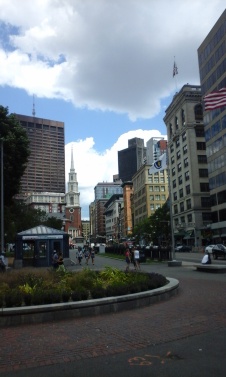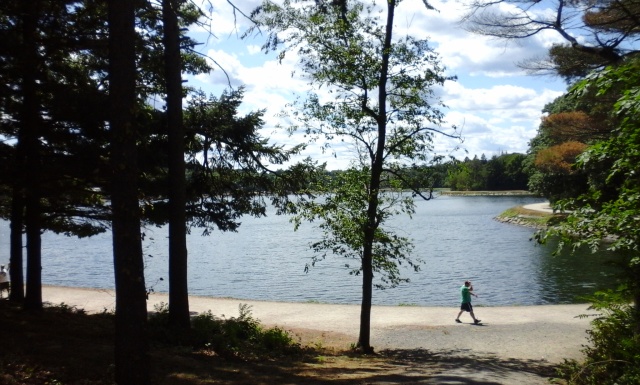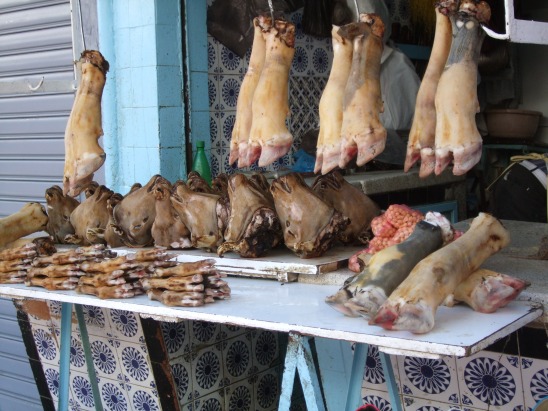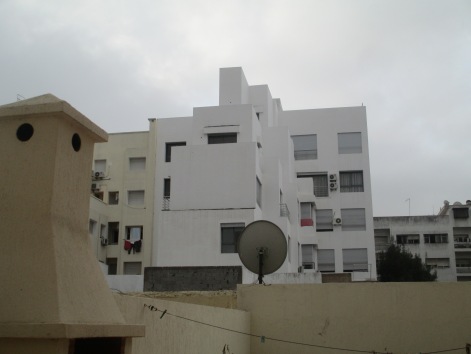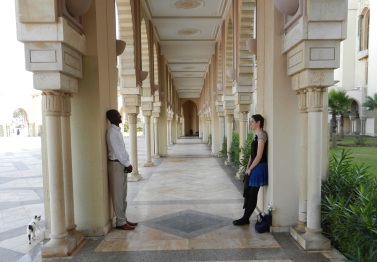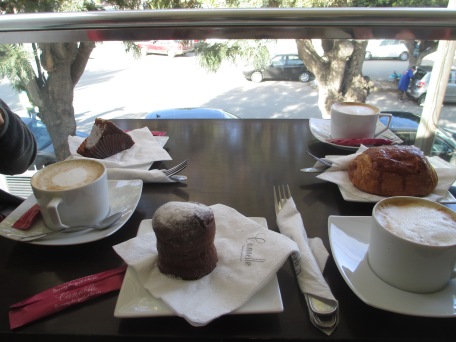My husband and I are currently going through the process of getting him an immigrant visa to come to the U.S. The process is long, complicated, and often unclear. I hope this guide will be useful for anyone else who is going to go through the same thing.
In this post, you will find a description of the process we went through, some tips I have, and links to other guides.
Getting Started
-Choose if you want a spouse visa or a fiancé visa. The fiancé visa allows you to get married in the U.S. and live there while obtaining the green card. If you chose this option though, you have perhaps only a six-month window in which to get married. We chose to marry and apply for the visa in Morocco because we knew we were going to stay there for at least another year.
-Submit all forms required. Some need to be translated, so make sure you start early. This is also the point at which you submit recommendation letters, bank info, or housing contracts to prove that you are really married and are not trying to commit marriage fraud.
TIP: A lot of people submit photos, which are fairly useless since they are so easily faked. It is much better to submit concrete financial evidence, such as proof that you share a bank account and housing.
TIP: Make sure to fill out the form that says you want email updates. If you do, you should get an email when the form is received.
-At this point, both you and your spouse should get letters with the case info and number which tells you whether your petition was approved in order to continue to the next step. These got sent to us by mail instead of email (twice!), so we decided to call, at which point they finally recorded that we would get email updates (they ignored the form we sent in saying the same thing).
-Next you must declare the agent, or the person filling out all the forms, which is generally the American spouse. You can do this over the phone to save time waiting for mail.
-You must submit fees (several hundred dollars) at this point. Once they have been received you can start the Visa Application Forms.
Visa Application
-The Visa Application primarily asks for financial information. You’ll have to look up your tax info for the last three years. You’ll also declare yourself as a financial sponsor for your spouse. You have to send in all of the sponsor form, even you you have nothing to write on the last page (which is just used if you have an interpreter). You can actually start working on this before you are approved the previous step to save yourself some time.
TIP: In order to be a sponsor, you earn more that %125 of the poverty line (about $20k/year). You most likely cannot meet this requirement if you have been working abroad for several years, since you will prove your income using U.S. tax returns. The reason for this requirement is that spouses cannot go on welfare while they are being sponsored because they are not supposed to burden the American economy. If you do not meet that requirement, you can get around it by having a joint sponsor who does have that income. A joint sponsor has legal obligations to support you if you should need it, so if that’s your plan make sure you have discussed the options with whoever is helping you.
-Police records need to also be sent with the sponsorship forms, so make sure you have records from all the countries where the applicant has lived. Once all of the needed documents have been received, you will be able to move on to the interview.
TIP: We had a terrible experience with this step, because the NVC asked us for a document that applies only to Moroccan citizens (which my husband is not). We called, emailed, and sent letters, most of which were completely ignored. We lost more than three months in the process. It seems that applications are read by a machine, not a person, so if the NVC does make a mistake, keep sending in complaint letters and emails as often as you can!
-Once your documents are all received, you will be given an interview date at your local embassy. You do not get to make any choices about your date, so you just have to be ready for anything. Once the interview is scheduled, you might have more documents to gather, and you will have to do a medical exam at an approved physician.
The Interview!
I had heard a lot about how the interviewer asks a lot of questions to determine if your marriage is real, but this was not the case at my husband’s interview. They did not ask for photos, proof that we live together, or receipts from vacations taken together. Perhaps if you are actually married, it is obvious enough. They do, however, require every original document, and not having one will postpone getting the visa. If you do have all of the documents, you will find out on the spot whether you have the visa.
Finally, the visa can be picked up. In Morocco, it is picked up at an agency called Aramex and is supposed to take two weeks from when all your documents are in. This is the step we are currently on; we were missing one document in the interview so we were not told whether we had the visa, but now the documents are in and Aramex said to wait 14 days. So far it has been a very, very long eight days….
The whole visa process is not easy, and the NVC and embassy are difficult to contact and do make mistakes. Give the whole process at least a year (we’re going on a year and four months now), and don’t make any major plans while you’re waiting since you cannot know when you will have the visa. The process will not make you feel good about the American Dream, so brace yourself.
This is only a description of our visa process. Here are links to a couple more blogs that give excellent descriptions of what to expect:

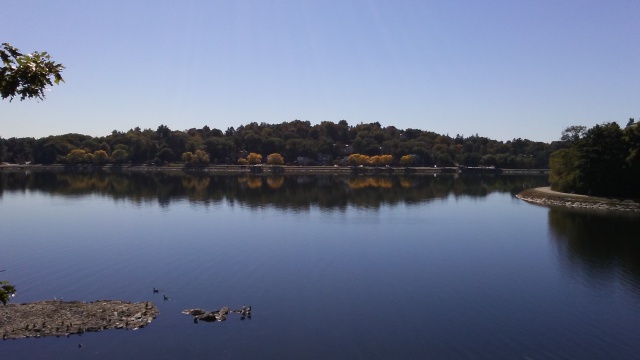
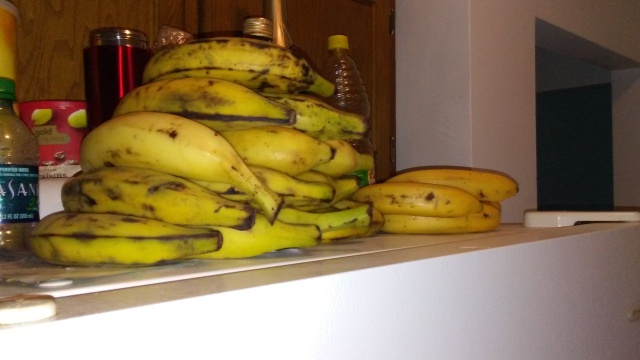
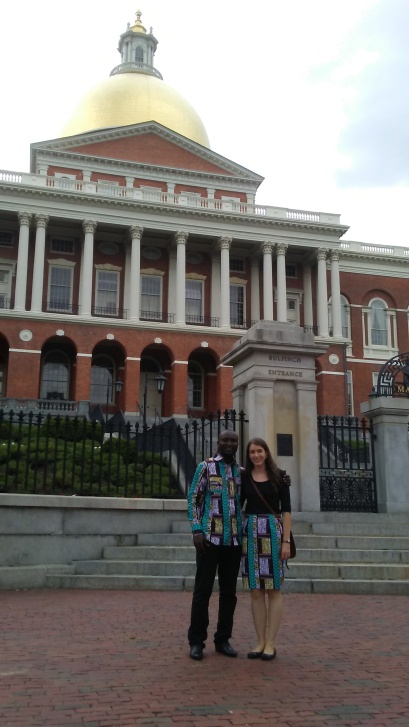
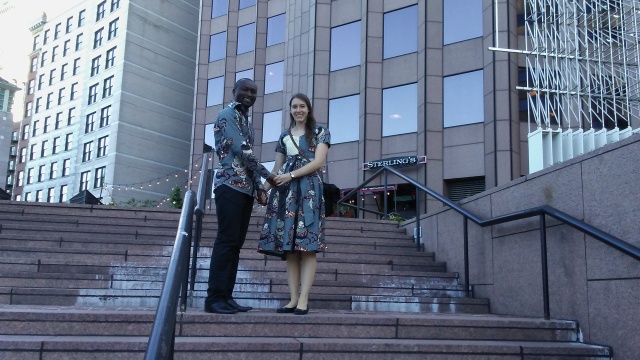 We have a big challenge ahead of us because we have so many stylish matchy outfits, but they are all for warm climates. Hopefully our love will keep us warm, because we’ve got a lot of Matching in Boston photos left to take!
We have a big challenge ahead of us because we have so many stylish matchy outfits, but they are all for warm climates. Hopefully our love will keep us warm, because we’ve got a lot of Matching in Boston photos left to take!